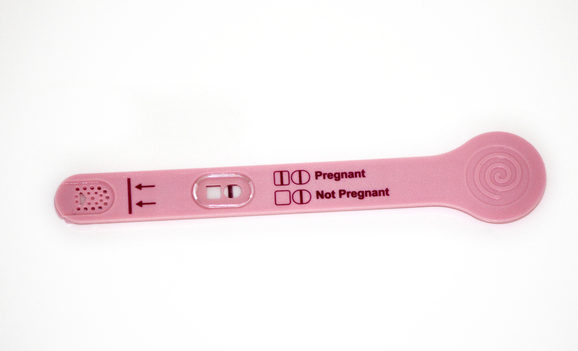
My reproductive function and infertility, which I affectionately refer to as my “ovarian insecurities,” have been a source of confusion, distress, and shame for me for 20 long years.
I got my first period in 9th grade. Yes, you guessed it, I was the last of the bunch by a long shot. I had wildly irregular periods that first year and was prescribed birth control pills at the age of 15 to normalize my cycles. When my doctor told me my cycles were abnormal, I took that to mean I was abnormal as a whole and needed fixing. I took that to mean I was the only teenager on the planet to have irregular cycles. How can you blame me? I was your typical awkward, insecure, know-it-all, dying-for-validation teenager. The truth is, I was actually as normal as they come. Unfortunately, I started believing there was something wrong with me, and I ran with it when I was too young to know any better.
These “ovarian insecurities” were quiet for the 15 years my periods were normalized by synthetic hormones, but they came back with a vengeance when, at the age of 30, I decided to go off the pill. This was basically an experiment to see what my body was capable of without being “fixed” by the drugs.
I went through cycles of no periods, then irregular periods. Two years of infertility. Fertility testing, fertility drugs, thyroid issues, and multiple miscarriages. Then I had my baby girl.
The fact that I have a daughter is still hard to believe, but that is not why I’m writing this.
I’m also not writing this to express gratitude to my body, the fertility gods, the fertility docs, or my midwife for helping me to get pregnant, stay pregnant, and birth a healthy baby. I’m definitely not writing this to tell anyone struggling with hormonal issues or infertility not to worry and that you will have a baby when the time is right or when you stop stressing out about it. And I’m not going to tell you to consider acupuncture, fertility tests, fertility smoothies, and herbs that promise to increase your chances of getting knocked up.
What I am here to tell you is that I made my journey to motherhood so much harder than it needed to be.
On top of the uncertainty of not knowing if I would ever have children (which is painful, brutal, and scary) I saw my inability to have regular periods as a teenager and get pregnant as an adult to mean I was less of a woman. It meant I was damaged, broken, and unloveable. I made all of it to mean I was “less than” everyone else. This was all of my own doing, and I began to use all the bad things that happened to me as proof that I was correct. It became less about having a baby and more about “fixing” me. Ew. That sucks to admit, but in order to heal the truth must come out.
I write this to make sure I no longer buy into the idea that my ability to have a regular cycle and get pregnant adds or takes away from who I am as a woman.

I am no better than anyone and I am no worse than anyone. I created the story that my reproductive function determined my value as a girl, and it followed me to adulthood. This story must end here, or it will get passed on to my daughter. That is why I’m writing this. I also write this for the woman sitting silently in shame because she is struggling to get pregnant or stay pregnant and feels broken and is trying everything under the sun to “fix” herself. I’m writing this for you, too.
The hard truth is this: If I don’t work to rewrite my story, it may become my daughter’s story — and she doesn’t deserve that.
Stay tuned for Part II of my adventures in ovarian insecurity and infertility. I’ll share how I navigated months of obsessively peeing on sticks and Googling how to increase my fertility, and how the torture of multiple miscarriages led me into isolation and depression. I’ll share how these experiences challenged my self-concept on a daily basis and what I did to survive. Most importantly, I’ll share what I learned, how I healed, and how I feel about trying to conceive again.














